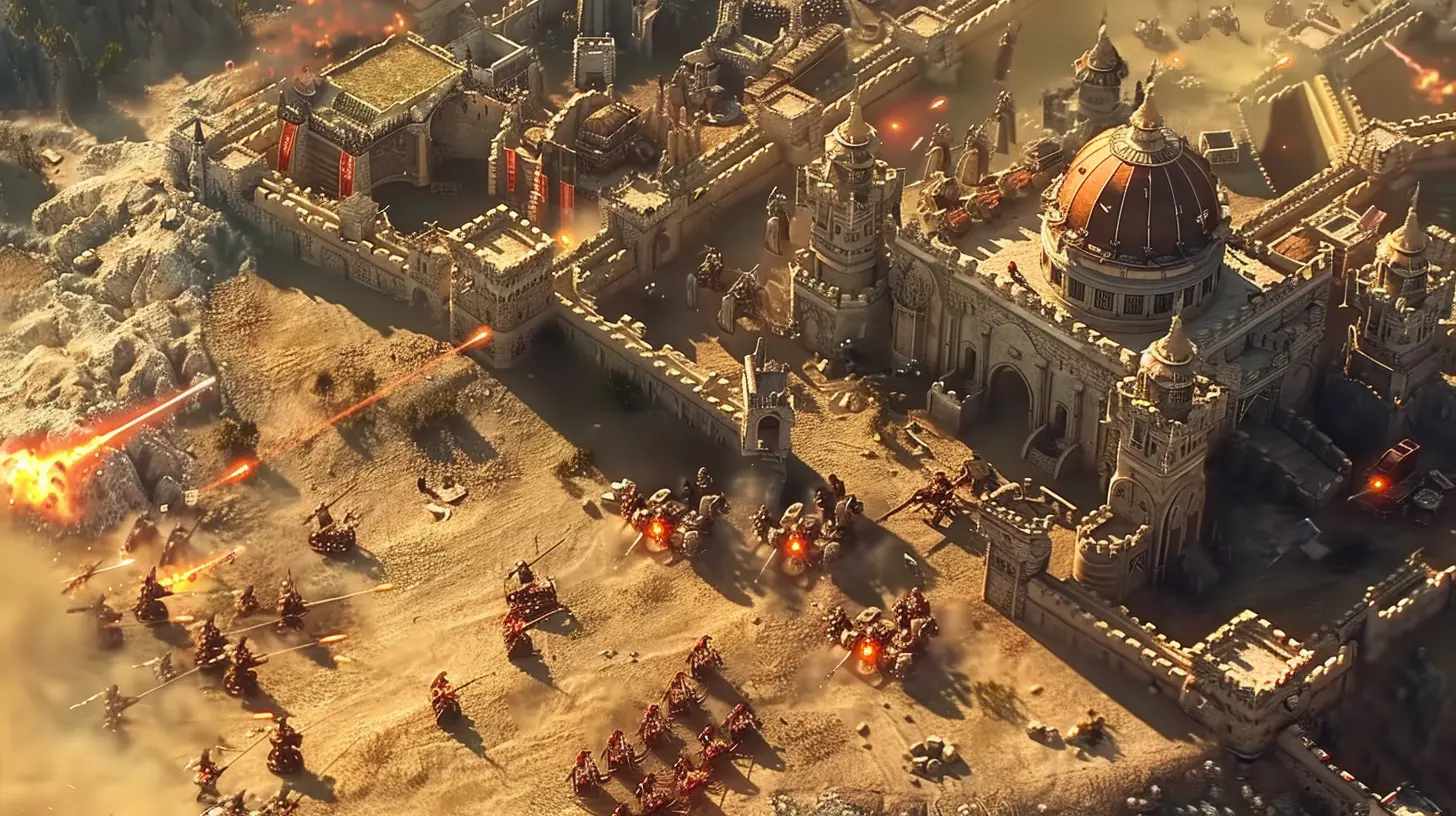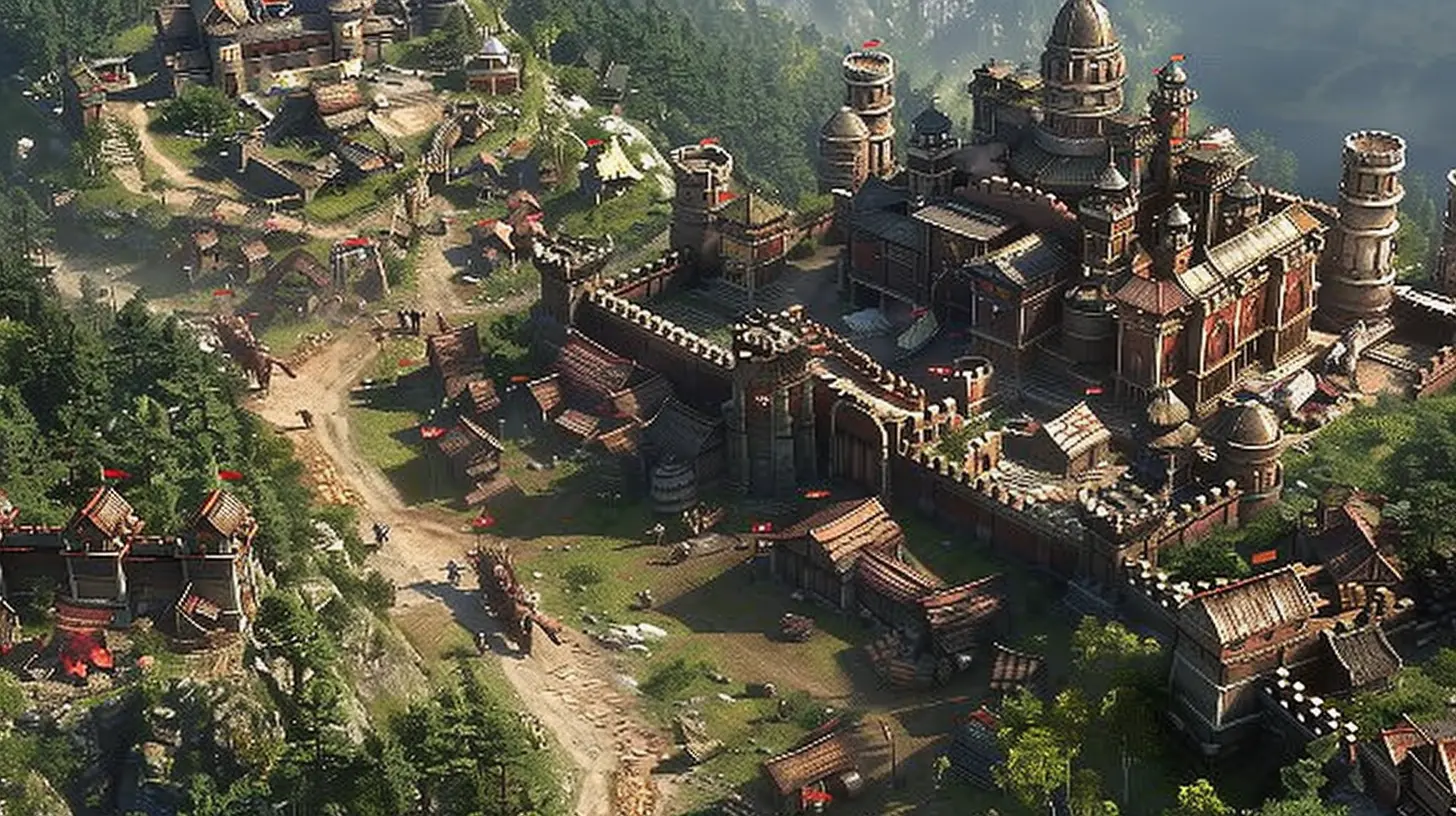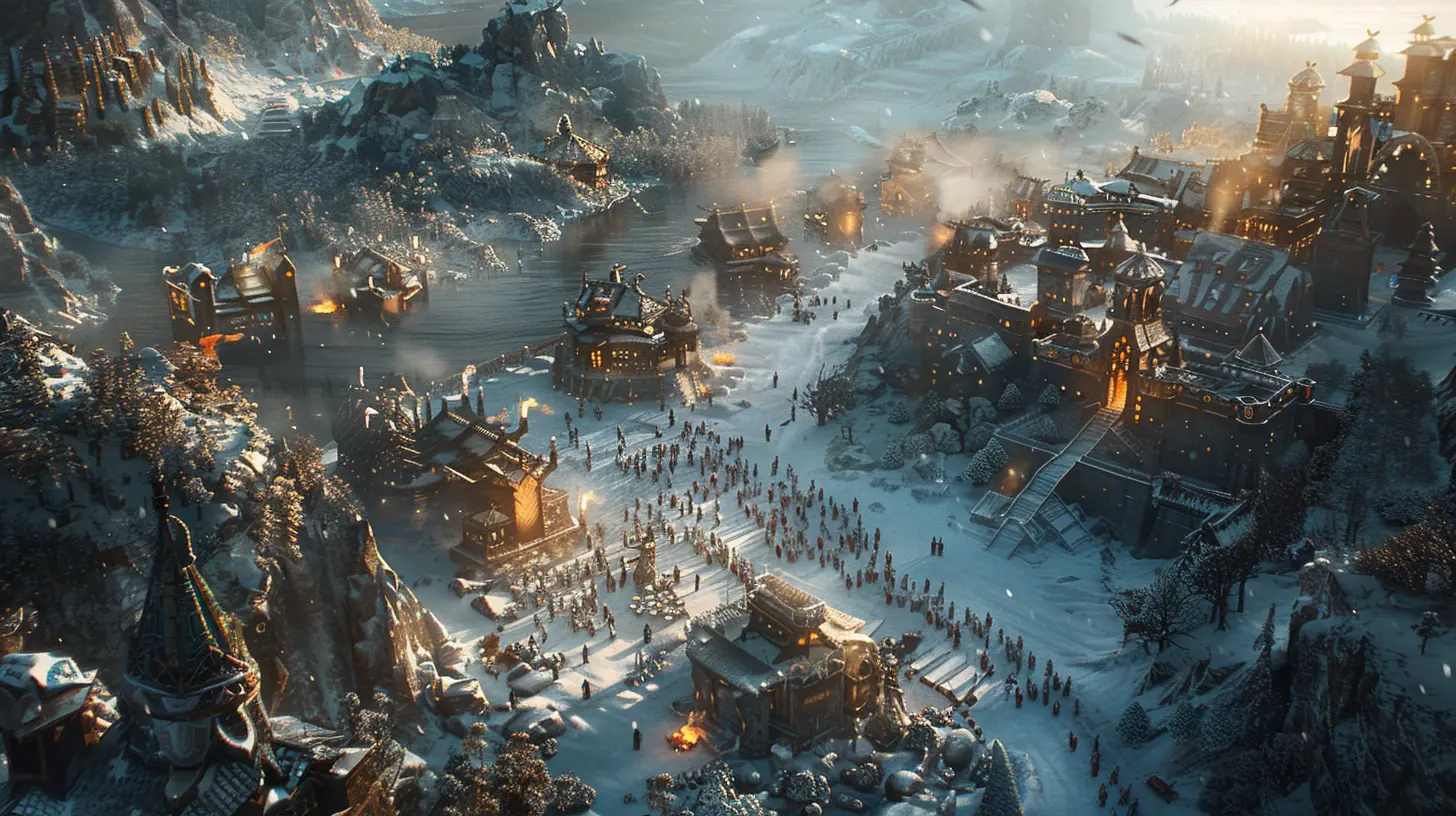Tactical Retreats: Knowing When to Fold in RTS Battles
27 September 2025
When you're knee-deep in the chaos of real-time strategy (RTS) battles, there’s nothing more nerve-wracking than realizing your plan is falling apart. Your carefully thought-out offensive has turned into a desperate scramble to recover, your base is under siege, and your opponent is flexing their dominance. It’s in moments like these that one crucial skill separates seasoned players from the rest: the ability to execute a tactical retreat.
But let’s be honest—no one likes to back down. Retreating feels like admitting you’ve lost. However, in RTS games, knowing when to fold isn’t a sign of weakness; it’s a hallmark of strategy and foresight. It’s about living to fight another day. So, let’s dive deep into the art of tactical retreats, why they matter, and how to master them to gain the upper hand in your battles.
What Is a Tactical Retreat?
Let’s start with a simple definition: a tactical retreat is a deliberate decision to pull your units back rather than risk total annihilation. It’s not about running away in fear—it’s about regrouping, preserving resources, and rethinking your approach.Think of it like pulling out your chess piece to save it from capture. Sacrificing one pawn might be fine, but throwing away your queen? That’s game-changing. RTS games are no different. Losing too many units or resources in a futile standoff can leave you vulnerable to counterattacks, and that’s a nightmare scenario you want to avoid.
The Psychology of Stubbornness: Why We Hesitate to Retreat
Here’s the thing—humans are wired to hate losing. In fact, we fear loss so much that we sometimes dig ourselves into deeper holes to avoid admitting defeat. Psychologists call it the "sunk cost fallacy." This is when you’ve already invested so much in something (like a doomed attack) that you feel compelled to keep going, even when it’s clearly a bad idea.Sound familiar? Maybe you’ve sent wave after wave of units, desperately hoping to break through an opponent’s defense. Or perhaps you’ve refused to give up a contested resource point, even as your army crumbles. The result? Your opponent not only survives but grows stronger while you’re left scrambling with your resources drained.
The key to winning in RTS is to detach emotion from your decisions. Good players don’t see retreating as failure; they see it as repositioning for success.
Signs It's Time To Fold
How do you know when a tactical retreat is the right move? It’s not always obvious, especially when you’re in the thick of battle. Here are some telltale signs it’s time to fold:1. You're Outnumbered or Outgunned
If the enemy has a clear numerical advantage or superior technology, sticking around is likely a death sentence. There’s no shame in falling back, regrouping, and reinforcing your ranks before engaging again.2. Your Frontline Is Collapsing
When your frontline units start crumbling, any hope of holding your position quickly fades. A retreat here allows you to reorganize your surviving units and strengthen your defense.3. You're Losing Resources Faster Than You Can Replace Them
RTS games are as much about economy as they are about combat. If the cost of your attack is higher than what you’re gaining, it’s a losing trade. Pull back, secure your economy, and look for a smarter way to engage.4. The Objective Has Changed
Sometimes, the battlefield shifts, and what you were fighting for is no longer worth it. Maybe your opponent has baited you into a corner or is preparing an ambush. Recognizing this and retreating prevents further losses.
The Mechanics of a Successful Tactical Retreat
Retreating isn’t as simple as clicking the "move back" button and hoping for the best. A poorly executed retreat can leave you more vulnerable than staying put. So, how do you pull back without turning it into a full-blown rout?1. Plan an Escape Route
Before you engage in combat, always keep an eye on potential escape routes. A retreat without a plan is like jumping off a cliff without a parachute. You need a fallback position where your units can regroup safely, whether it's behind a choke point, near base defenses, or close to reinforcements.2. Use Cover Fire
Sacrifice a few expendable units, deploy area-of-effect abilities, or lay traps to slow down your pursuers. This buys the rest of your forces precious time to retreat without taking heavy losses.3. Prioritize Key Units
Not all units are created equal. If you’re retreating, focus on saving your high-value or specialized units. It’s better to lose a few infantry grunts than your hero unit or a siege weapon you’ve spent ages building.4. Cut Your Losses
During a retreat, some losses are inevitable. Accept this and focus on salvaging what you can. Holding onto units that are beyond saving will only slow down your retreat and get more troops killed.When Retreating Turns the Tide
It might sound counterintuitive, but a well-timed retreat can actually win you the game. How? By baiting your opponent into overextending or giving you time to set up a counterattack.Think of it like a rubber band. You pull back, creating tension, until—snap!—you launch forward with renewed strength. Your opponent, sensing victory, often becomes overconfident and careless. They might chase you into unfavorable terrain, allow you to set a trap, or leave their own base exposed. That’s when you pounce.
Adapting to Different RTS Games
Not all RTS games are created equal, and the mechanics of retreating can vary widely depending on the title you’re playing. Here are a few examples:1. StarCraft II
In StarCraft II, knowing when to retreat is crucial because every second counts. Units can die in the blink of an eye, and resources are limited. Tactical retreats often involve using terrain to your advantage, like pulling units back through a choke point or retreating to high ground.2. Age of Empires II
In Age of Empires II, retreating is often about preserving your villagers and economy. An early retreat to your Town Center can save you from a disastrous rush, while retreating your army inside a well-placed castle can buy you time to rebuild.3. Company of Heroes
In Company of Heroes, retreating is literally a core mechanic. The game’s "retreat" button instantly pulls units back to base but at the cost of ceding territory. Knowing when to use it is key—you don’t want to lose ground needlessly, but you also don’t want to lose your best units in a doomed fight.Letting Go of Ego and Embracing Strategy
At the end of the day, the biggest barrier to mastering tactical retreats is your own ego. No one likes admitting they’ve been outplayed, even temporarily. But here’s the truth: RTS games aren’t about winning every engagement. They’re about winning the war. And sometimes, winning the war requires taking a step back.It’s like boxing—float like a butterfly, sting like a bee, right? Knowing when to dodge (or retreat) is just as important as landing a punch. So, the next time your battle plan starts crumbling, don’t let pride get in the way. Pull back, reassess, and come back swinging.
Final Thoughts
Tactical retreats aren’t just a way to avoid defeat—they’re a critical tool for achieving victory. Whether you’re outnumbered, outgunned, or simply out of options, pulling back at the right moment can turn the tide of any RTS battle. It’s not weakness; it’s wisdom.So, as you dive into your next RTS showdown, keep an eye on the bigger picture. Because in the grand scheme of things, knowing when to fold might just be the ace up your sleeve.
all images in this post were generated using AI tools
Category:
Real Time StrategyAuthor:

Avril McDowney
Discussion
rate this article
1 comments
Phoenix McKenzie
Great article! It’s so true that sometimes the best strategy is knowing when to pull back. Those nail-biting moments of deciding to retreat can save your resources and turn the tide later. Tactical retreats are an art, for sure!
September 29, 2025 at 2:42 AM

Avril McDowney
Thank you! I'm glad you found it insightful. Tactical retreats can indeed be game-changers!


